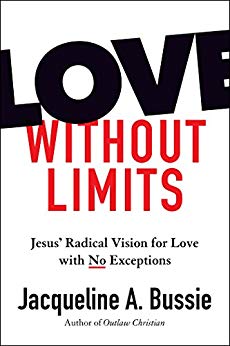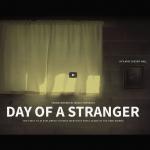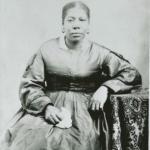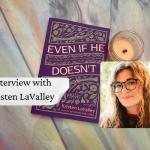
If the 1959 plane crash which claimed the lives of Buddy Holly, the Big Bopper, and Ritchie Valens marked “the day the music died” — as Don McLean put it — then I think we could make a case for November 12, 2018 being the day the stories died.
For this was the day we lost Stan Lee.
Lee — the chief storyteller behind legendary comic book superheroes like Spider-Man, Iron Man, the Incredible Hulk, Doctor Strange, and Black Panther — was a storyteller, pure and simple. Just as rock-and-rollers like Buddy Holly had no claim on being “serious” musicians (of the Pavarotti/Bernstein world), likewise a blue collar guy like Lee had no pretensions of writing literature of the James Joyce/William Faulkner variety. Lee’s mission was to sell monthly comic books to kids. Pure and simple. Which meant he had to tell a good enough story to keep them coming back for more. The story was everything.
Which is why I suspect that Peter Parker and Tony Stark will be remembered long after Leopold Bloom and Quentin Compson are long forgotten.
Don’t get me wrong: I love literature. For that matter, I love classical music. But when I get tired of listening to Vaughan Williams, I’m just as likely as not to give Kate Bush or Peter Gabriel a spin as anything else. And the fact that I find pleasure in the writing of Flannery O’Connor or Virginia Woolf doesn’t preclude me from eagerly awaiting the next Marvel movie.
I love a simple, entertaining story (even if it’s formulaic) as much as I am moved by perceptive character studies, eloquent language, and imaginative plots. And given how popular Marvel movies have become in recent years, it’s evident I am not alone.
Think of it this way: there’s no reason on earth why the same person cannot enjoy a nuanced single malt scotch or the most exquisite wine cannot also savor an order pint of lager. A hamburger is no filet mignon, but each offers its own unique pleasure.
Why Stories Matter
Human beings love stories. We love great stories (The Lord of the Rings) and simple stories (The Old Man and the Sea). We enjoy love stories, horror stories, war stories, fishing stories, magical and fantasy stories, comedies and tragedies. We love to root for the underdog and watch the bad get what he deserves in the end. As we mature, we often develop a particular taste for stories and characters that are morally ambiguous (from Han Solo to Severus Snape), because they remind us of our own complicated and messy lives.
Stories entertain us, they educate us, they inspire us, they motivate us, they make us think, make us cry, make us rage. The Greeks understood that something magical happened when a story would evoke a strong emotional response. They saw this as a kind of purging, or cleansing, and gave us the word catharsis to describe it.
All you need to do is go visit a large comic book/science fiction (like San Diego ComicCon or DragonCon in my hometown of Atlanta) to see just how much stories matter to people. Folks devote incredible amounts of time, money, reflection, and creativity to efforts that allow them, even for just a few days each year, to vicariously inhabit their favorite stories, through cosplay, convention panels, and meet-and-greets with their favorite authors or actors.
And of course — what matters in the world secular art and entertainment has its corollary in the world of spirituality and religion.
For spirituality is nothing more than its own special kind of story — a myth — indeed, a “true myth” as C. S. Lewis put it. Not that we can empirically prove or disprove any of the great stories of the world’s religious traditions (I think it’s charming that people devote their lives to trying to find Noah’s ark or the Ark of the Covenant, but franky I think they’ve missed the point). No, the “truth” of a true myth is not what can be definitively documented or debunked, but rather what makes a life-changing difference in the heart of the believer.
What makes the resurrection true is not anything verifiable from Jerusalem two thousand years ago — but rather the way that resurrection manifests in real peoples’ lives, year after year and still happening today.
We All Have Many Stories
Every person’s life is vibrant with multiple stories. We have the story of our family of origin, of our personal triumphs and tragedies, of our relationships and religious commitments (or lack thereof). We all have “bigger” stories that we also participate in: the story of our nation, our ethnic identity, our local or regional history, our identification with other groups of people (e.g., people in recovery, gay people, business owners, political independents, and so forth and so on). Sometimes we hop from one story to another, like Saul of Tarsus who went from overly zealous Pharisee the Paul, the Christian apostle to the Gentiles.
You are the sum of all your stories. No one story tells the whole story of who you are.
And that’s true of everyone else. If you only know one story — one idea, one conception, one stereotype — about someone, then you don’t know all their stories, which means you don’t know them, really.
If you only know someone as a gay person, you don’t know the whole story. If you only know someone as a Trump supporter, you don’t know the whole story.

If you only know someone as a Muslim, you don’t know the whole story. If you only know someone as a criminal, you don’t know the whole story.
There’s a new book called Love Without Limits: Jesus’s Radical Vision for Love with No Exceptions by Lutheran theologian Jacqueline Bussie. I think it’s a must-read, especially for Christians, but I would recommend it to anyone.
Bussie says things like this: “I don’t know about you, but I’m sick and tired of people and politicians trying to sucker me into signing on to a single story— about anyone.”
This in response to an idea she picked up from a Nigerian Catholic author, Chimamanda Ngozi Adichie — that when we only tell one story (“a single story”) about a person or a group of persons, we become more likely to accept stereotypes (“Muslims are terrorists,” “Republicans are bigots,” “feminists hate men” and so forth). The only real antidote to this is to insist on seeing everyone as people with many, many stories.
Similar to this is a quote she offers from the Slovenian philosopher, Slavoj Žižek:
An enemy is a person whose story you have not yet heard.
Or we could say, a person whose stories we do not know.
The World’s Greatest Story: in Six Words
Christianity — and particularly, the wisdom teachings of Jesus of Nazareth — invites us into its own deep and insightful story, but also calls us to enlarge and transform our own story.
I think we could boil down the Christian story to six words. Here you go:
God is love.
Love your enemies.
That’s it in a nutshell, isn’t it? Once we recognize that God is love, we have no choice but to orient our loves to love (unless we simply are not interested in God, but that’s tantamount to saying “no thank you” to love-with-a-capital-L). And once we’ve oriented our lives toward love: then love will never stop calling us, beguiling us, beckoning us, inviting us, to become channels for love in the world: a love that flows in four directions, all equally important:
- Love flows toward us, and we are called to learn to accept that love (healthy self-love);
- Then we are called to give that Love back to its source (“Love God”);
- And then, to share it with one another (“Love your neighbors”);
- Even going so far as to share it with those whom we think don’t deserve it (“Love your enemies”)!
For you see, love only happens in relationship (even relating to one’s own self, essential for self-love). Which is another way of saying, love is the foundation of every story. Even a horror story, which is only horrible because it shows us what the lack-of-love looks like. Love is a story, and we are all, always, invited to make the story of Love the story of our lives.
Love, of course, is God, for God is love. We are called to love God, self, others, even enemies, because we are called to be part of the story of God. It’s a story with a happy ending (no matter what conflicts and plot-twists occur along the way). Love gathers all to itself, and then spreads it ourself, giving itself away. God is love, and love is a story. And we are all called to be part of the telling.
Enjoy reading this blog?
Click here to become a patron.














